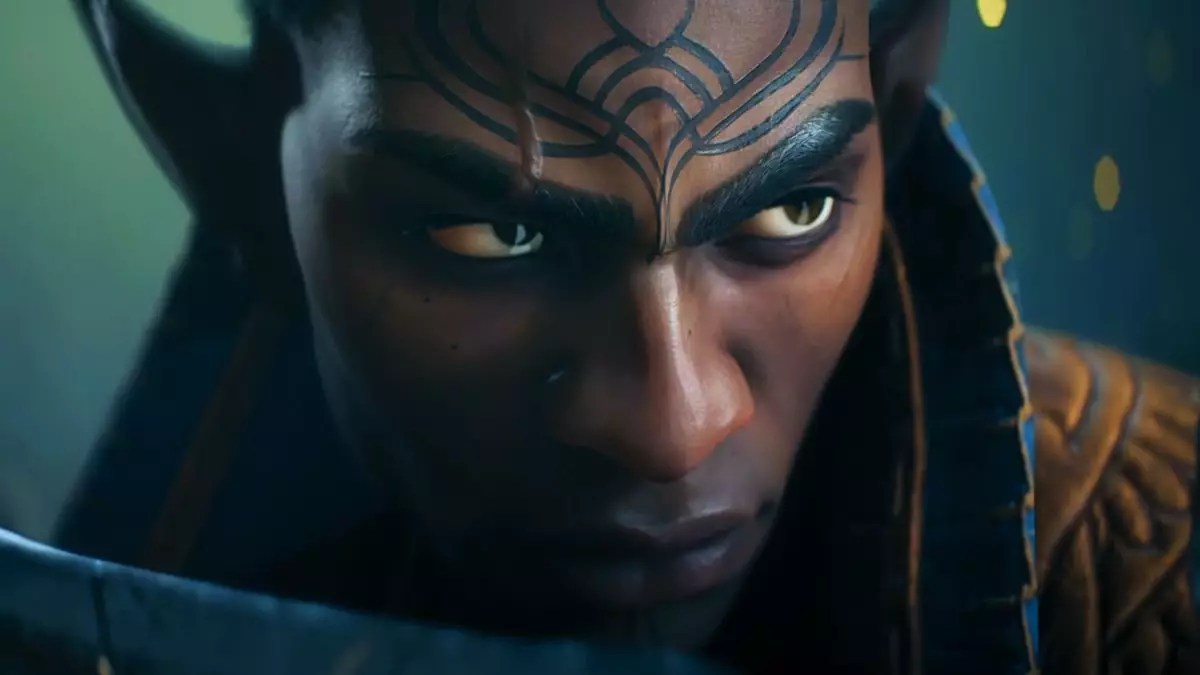Three months since its much-anticipated launch, Dragon Age: The Veilguard has found itself in an unexpectedly disheartening position within the gaming industry. This title, brought forth by BioWare—a company renowned for its immersive storytelling and character-driven narratives—failed to captivate the wider audience as expected. EA’s realistic assessment of the situation reveals a stark contrast between the positive critical reception and dismal sales figures, which have reportedly plunged by nearly 50%. Such a development raises uncomfortable questions about the evolving preferences within the gaming community, the nature of RPG appeal, and the pressures faced by major publishers in an oversaturated market.
In a recent earnings call, EA’s CEO Andrew Wilson candidly acknowledged that Dragon Age: The Veilguard did not fulfill the fiscal goals set by the company. Interestingly, while underscoring the importance of blockbuster storytelling—a strategy EA has historically leaned on—he noted that the high-quality launch and positive criticism of The Veilguard weren’t sufficient to ensure a successful financial outcome. This disconnect prompts a critical evaluation of the publisher’s expectations in the face of shifting video game demographics and player interests.
While the product may have embodied quality in terms of gameplay mechanics and narrative depth, it’s apparent that these attributes alone are no longer definitive in capturing market share. EA’s findings highlight a critical focal point in the gaming industry, suggesting that great reviews and a solid launch do not necessarily equate to sustained commercial success.
CFO Stuart Canfield highlighted these changing dynamics further by suggesting that The Veilguard’s performance signals a transformation within the gaming industry. Players’ interests have increasingly diversified, making it vital for publishers to reassess resource allocation toward projects that resonate more closely with contemporary trends. This balancing act poses a significant challenge for established franchises like Dragon Age, which must now contend with a crowded marketplace filled with new and innovative experiences that capture the attention of gamers.
The fallout from this financial shortcoming led to unfortunate layoffs within BioWare, painting a grim picture of the company’s future. Once synonymous with RPG excellence, BioWare now faces the daunting task of reinvigorating its brand while not just appeasing long-time fans, but also attracting new players. The need to adapt and evolve amid daunting competition from both mainstream developers and indie studios alike has never been more pronounced.
Despite being heralded as a return to form for BioWare, many fans, including myself, find it challenging to reconcile the game’s quality with its market performance. Critically acclaimed reviews that touted The Veilguard as one of the best RPGs of 2024 raise the stakes on the publisher’s approach to storytelling and community engagement. There exists a jarring dichotomy in such praise versus the economic reality of the title’s reception.
As the dust settles, both fans and developers are left questioning the future of the Dragon Age franchise. Can BioWare recalibrate its vision and recapture the hearts of its audience while navigating the minefield of modern gaming’s demands? Only time will tell if the studio can harness its storied legacy to emerge resilient from the shadows cast by the disappointing performance of The Veilguard.


Leave a Reply